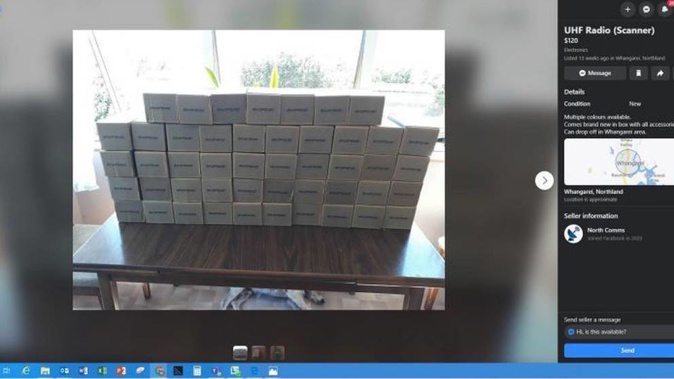
Authorities trying to curb the flow of illegally obtained two-way radio devices have charged a Northland man with importing them without a licence.
The two-way radios can be used for criminal means and can interrupt emergency radio networks, causing a serious risk to public safety.
The man, who has interim name suppression, recently appeared in Whangārei District Court, pleading guilty to breaching the Radio Communications Act 1989 by importing the devices without a licence.
Scheduled for sentence later this year, he faces a fine of up to $30,000.
The charge is related to a consignment of 50 Baofeng UV-5R and two Baofeng UV-82 two-way radios, which was addressed to the man's home and intercepted by Customs at Auckland airport on December 23 last year.
A summary of facts released by the Ministry of Business, Innovation and Employment's Radio Spectrum Management (RSM) unit, said the illegal supply of these two-way radios had become a serious problem for police in the Northland region.
The RSM is the authority that allocates rights for the use of the radio spectrum, enforces compliance with licensing requirements, and administers the Radiocommunications Act 1989 and the Radiocommunications Regulations 2001.
There are specific regulations around the use of two-way radios. Concern about them led to the introduction of a Notice in 2018 banning the importation, sale and distribution of two-way radios without a special, endorsed licence.
If a person sells prohibited equipment without an endorsed licence, RSM can issue a notice for them to desist and to recall the equipment from the buyer and refund the purchase price.
The Northland man is only charged with his importation of the devices, which was intercepted.
When the parcel did not arrive at his house, he phoned New Zealand Post to find out why.
The RSM says the background to the charge is important.
It first learned in June 2020 that the man was selling two-way radios through his Trade Me account and that he was unlicensed to do so.
He was issued a desist notice and told how to go about applying for a licence to sell the devices legally.
He was also told to supply information about who he had sold devices so RSM could check they were only sold to licensed amateurs.
Later that day the man applied for and was granted the first stage licence to sell radio transmitters. But there was never any application for endorsement.
Notwithstanding that and further warnings, he continued to sell the devices through Trade Me and also sold some through Facebook using a profile named "North Comms" - a colloquial term for Police Northern Communication Centre.
Records were not available to determine how many of the radios he sold through Facebook.
On January 21 last year, RSM saw a photo he posted on his North Comms page showing 47 of the devices for sale. It indicated he had likely sold a significant volume, RSM said.
At that stage, RSM was unable to link the profile to the man.
By December 7 last year, RSM became aware he had resumed listing two-way radios on Trade Me.
The listing said the transmitting function had been disabled for non-licenced users but said fully functioning devices could be supplied to licenced users.
An RSM investigator made a covert inquiry of the man asking him to supply a fully functioning device and was told he would do so "just so long as you please be mature with it". However, the man did not take any steps to verify the purchaser was licenced.
Trade Me records showed he sold 13 two-way radios through his account between November 21 and December 13, last year.
He was issued an infringement notice and told to take the corrective actions stipulated by the Act but he failed to do either.
Interim suppression was imposed on the basis that publicity could cause the man extreme hardship, including by affecting his current job search.
- Sarah Curtis - Open Justice, NZ Herald
Take your Radio, Podcasts and Music with you

/cloudfront-ap-southeast-2.images.arcpublishing.com/nzme/GVTUITHPWVKFU7LYQQGVZ4322M.jpg)








